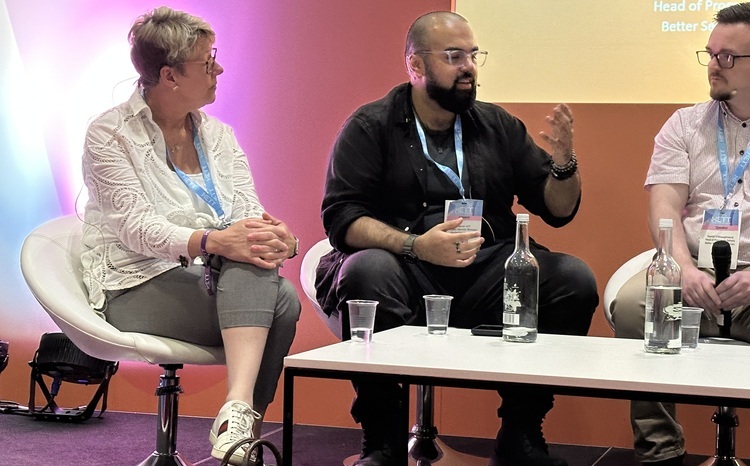Bryant lays out conditions for helping tech cos into the NHS
- 1 November 2016

NHS Digital wants to improve market conditions to make it easier for businesses to sell technology into the NHS, but in return it will require companies to increase usability, interoperability and security.
That was the message from Beverley Bryant, NHS Digital’s director of digital transformation, speaking at EHI Live 2016.
Bryant, who has been in her present job since June, told the conference at the NEC in Birmingham: “We are looking at how to improve market conditions and give clinical commissioning groups more choice around the software they can buy.”
But she added: “If there are no open market structured APIs – we’re not buying it”. She also stressed that SMEs and start-ups must work with local information governance structures and provide the security the NHS requires.
The government has already taken steps to make it easier for innovative organisations to sell to the public sector, and for the NHS to take up new ideas.
Last week, it published the Accelerated Access Review, which was set up to find ways to speed up access to innovative drugs, devices and diagnostics for NHS patients.
It urged greater collaboration between NHS organisations, suppliers and patients during the development of products.
“The historical model where innovators simply throw new products at health care systems and allow them to layer these onto existing pathways is no longer viable,” it says.
At the Health and Social Care Expo in Manchester this September, Simon Stevens, chief executive of NHS England, said that from April 2017 an innovation and technology tariff would be established.
The first products to be selected under this system will be announced overnight. The tariff should make it easier for trusts to be reimbursed for using innovative products and procedures, without negotiating on national or local prices with their commissioners.
Meanwhile, NHS England has set up a test bed programme to encourage trusts, technology companies, charities and universities, to test out new technologies, and ways of evaluating and paying for them.
In her presentation today, Bryant said it was vital for best practice and use cases need to be developed and then spread across the NHS.
“You have to sell benefits over and over. If we’re going to do the investment, you’ve got to drive the benefits home,” she said.
Bryant formerly worked at NHS England. When she moved to NHS Digital, she brought a large chunk of the digital delivery work she had previously overseen at the commissioning board with her.
In her rousing speech, in which she jokingly referred to herself as chief interference officer, she acknowledged that implementation was another key issue that had to be addressed to achieve change. “We’ve got to work with users on the front line”, said Bryant.
In the brief question and answer that followed, Bryant was asked whether the £4.2 billion that Jeremy Hunt said the Treasury had given the NHS for technology over the next five years was going to be enough. Her answer was: “I’m not kicking a gift horse in the mouth."




